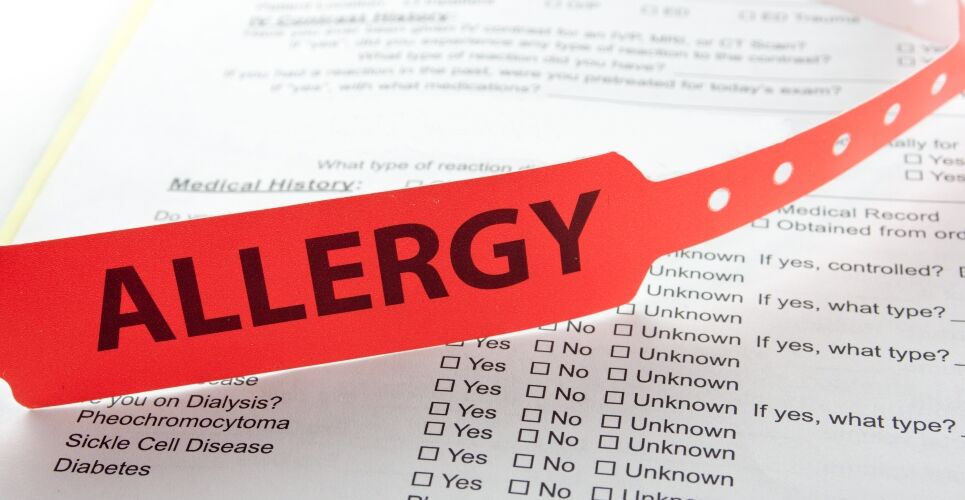It is likely to be safe for penicillin allergy labels (PALs) to be removed for most patients, a study from the University of Birmingham has found.
Patients who thought they had an allergy to penicillin and who were deemed low risk took part in ‘penicillin challenges’, where a small dose of penicillin was given instead of allergy testing. Some 97% of participants labelled with PALs were shown to have no allergy.
The findings, published in the Journal of Infection, could improve care for individuals by giving patients a wider choice of antibiotics and easing the burden of antimicrobial resistance as more patients can safely be given penicillin.
A total of 6% of the population in England is labelled with a PAL, and 15-20% of patients in secondary care have a stated penicillin allergy. However, a large body of evidence suggests that 90-95% of PALs are inaccurate. Within the NHS, there is no point-of-care test for penicillin allergy, and tests are onerous and time-consuming.
Researchers and clinicians worked across three UK hospital trusts, University Hospitals Birmingham NHS Foundation Trust (UHB), Leeds Teaching Hospitals NHS Trust and Oxford University Hospitals NHS Foundation Trust, to deliver the penicillin challenges.
Over 2,000 patients were initially screened for eligibility in the study and categorised as low- or high-risk. Across the three specialties of acute medical, pre-surgical and haematology-oncology, 126 low-risk patients took part in the study.
Participants received an oral dose of amoxicillin, delivered by a research nurse or research pharmacist supervised by a non-allergy specialist clinical consultant. Resuscitation facilities were available if needed.
Of the 126 participants, 97% had no penicillin allergy, and no serious hypersensitive reactions were reported. The researchers showed how a closely monitored protocol for taking penicillin directly, rather than using a skin allergy test that needs to be delivered by an allergy specialist, was effective in low-risk patients, allowing these patients to safely use penicillin in the future.
Professor Mamidipudi Thirumala Krishna, chair of Allergy, Clinical Immunology and Global Health at the University of Birmingham and chief investigator of the study, said that inaccurate penicillin allergy labels are a huge global burden.
He explained: ‘Penicillin allergy labels are not benign and contribute to antimicrobial resistance, so enabling more patients to safely benefit from penicillin will ease the burden of other antibiotics that are currently being overused and improve quality of clinical care.’
The researchers state that inaccurate penicillin allergy labels are magnified by insufficient allergy specialists and a lack of point-of-care tests. Inaccurate penicillin labelling constitutes a major public health challenge, but this study could provide a low-cost framework that healthcare systems can adopt.
Dr Louise Savic, consultant anaesthetist and drug allergy specialist at Leeds Teaching Hospitals NHS Trust, and co-chief investigator, added: ‘This study demonstrates that a routine programme of de-labelling people who believe they are allergic penicillin, outside the setting of a specialist allergy clinic, is potentially achievable.
‘De-labelling was particularly successful within the outpatient population, suggesting that future efforts might be best targeted to this group in order to maximise benefit.’
This study follows research published in 2023 which found the use of a direct oral penicillin challenge in patients with a low-risk of penicillin allergy was non-inferior to the standard-of-care skin testing.
And in October 2023, the Royal Pharmaceutical Society warned that millions could be missing out on the most effective antibiotic choice because they mistakenly believe they are allergic to penicillin. It launched a checklist for pharmacists to help inform conversations with patients about penicillin allergy and help to determine if a patient is allergic to penicillin or not.
A version of this article was originally published by our sister publication Nursing in Practice.

